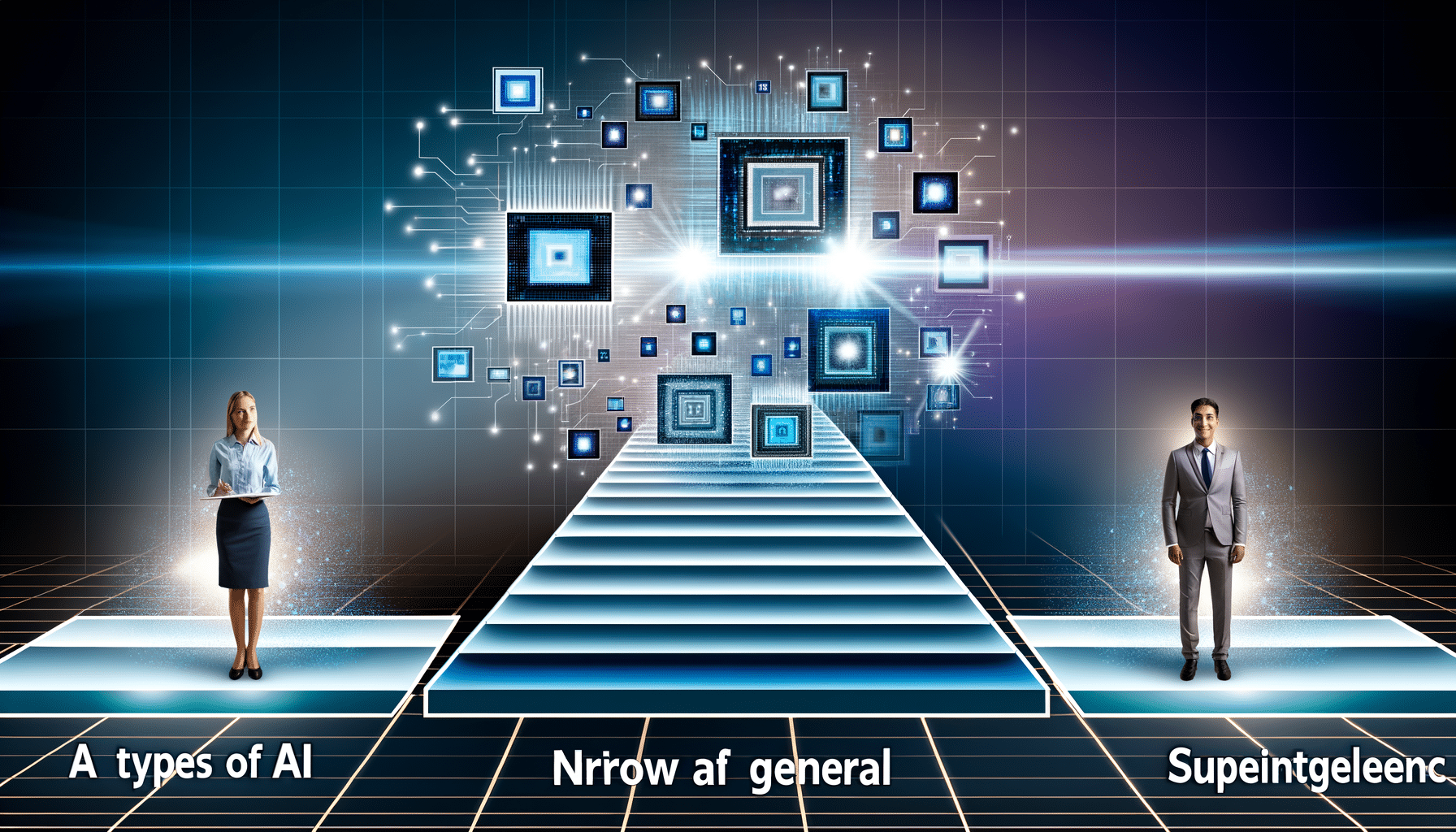In the dynamic world of Artificial Intelligence, there’s an overwhelming array of possibilities and potentials. Having spent years navigating the landscape of technology and entrepreneurship, I recognize how crucial it is for leaders—especially those in Legal, Finance, and Compliance sectors—to understand the core concepts of AI. These concepts offer insights that could drive strategic decisions and spearhead innovations in record management, as we’ve seen with RecordsKeeper.AI.
At its core, AI presents itself in different forms, each with unique capabilities and implications.
Understanding Narrow AI
Narrow AI, also known as weak AI, is currently the most prevalent form of AI technology. It’s designed to perform specific tasks with a high level of efficiency. Whether it’s Apple’s Siri, Amazon’s Alexa, or our very own RecordsKeeper.AI’s automated categorization feature, Narrow AI excels in carrying out well-defined tasks.
These systems function based on rules and data designed for specific operations like playing chess, driving a car, or sorting files. They do not possess the self-awareness or contextual understanding a human would, but their efficiency can’t be understated. In legal and compliance domains, where precision and accuracy are paramount, leveraging Narrow AI can automate mundane tasks, ensuring adherence to rules and policies without exhausting valuable human resources.
The Potential of General AI
General AI, often referred to as strong AI, is a concept that envisions machines with the ability to perform any intellectual task that a human can do. While still largely theoretical, General AI would possess a breadth of understanding and adaptability akin to human cognition.
Imagine an AI with the capability to understand emotions, reason, and learn independently across diverse tasks. Although this level of comprehension remains in the realm of research and speculation, its potential impacts on fields like compliance and data security are enormous. Imagine dynamically adapting systems that could preemptively address security threats or automatically adjust to new data compliance regulations without manual intervention. We, at RecordsKeeper.AI, are striving to continuously refine our solutions, inching closer to this ambitious vision.
Envisioning Superintelligence
The concept of Superintelligence expands beyond human capability, suggesting a form of AI that surpasses human intelligence and expertise. It sparks a mix of both fascination and apprehension within the tech community.
While it remains a distant futuristic narrative, Superintelligence could redefine industries by potentially solving complex global challenges such as climate change, healthcare, and ethical governance. However, it also raises ethical dilemmas about control, accountability, and the role of humans in overseeing such powerful entities.
An Evolution of Opportunities and Challenges
Each type of AI—from Narrow, to General, to Superintelligence—presents unique opportunities and challenges. As a founder deeply invested in leveraging technology to foster innovation, I see AI’s evolution as a monumental opportunity for growth and transformation in record management.
The integration of AI in systems like RecordsKeeper.AI isn’t just about keeping our firm at the forefront of tech innovation; it’s about empowering our users to harness these technologies to strategically enhance their operations and security measures.
How Can We Prepare for the Future?
The journey through these types of AI will require a blend of ongoing learning and adaptability. For professionals in sectors like legal and finance, the ability to remain agile and open to integrating AI solutions is fundamental. To those looking to explore the deeper intricacies of AI and its development, my suggestion is to continually engage with new learning materials, stay informed on tech trends, and perhaps even connect with platforms like RecordsKeeper.AI for practical insights.
As we continue to bridge the gap between AI potential and practical implementation, I’m excited to see how we can collectively drive progress, ensuring that technology remains a force for good, ethically enhancing the way we perform and secure our work.
Thank you for taking the time to explore these ideas with me. I invite you to follow my journey and share your own insights as we delve deeper into the possibilities and applications of AI.








